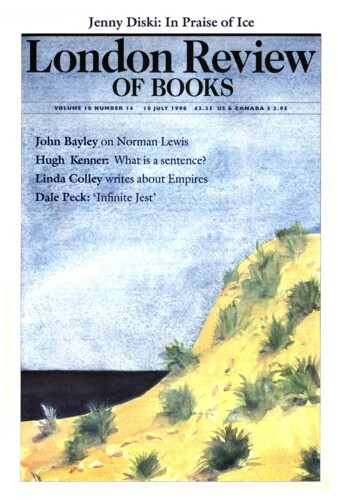‘Plant less, produce more, harvest less’
Perry Link, 18 July 1996
In the two thousand years of Chinese history before the 20th century, there were more than eighteen hundred famines. The locations of these famines and their causes – drought, flood, war, pestilence – are noted in historical records only tersely, but even these simple comments are enough to show that the great famine of 1959-61 was unprecedented in several ways. Not only did it claim more lives (about thirty million, give or take ten million) than any other; it was also the first Chinese famine to have no particular location. It happened everywhere, from lowlands beneath Yellow River dykes to the high plateau of Tibet. Natural boundaries did not contain it because natural phenomena were not its cause. The famine occurred because a Mao Zedong brainstorm turned into a government policy; its limits were the administrative boundaries of the Chinese state. As Jasper Becker writes: ‘Mao’s famine … was entirely man-made. China was at peace. No blight destroyed the harvest. There were no unusual floods or droughts. The [urban] granaries were full and other countries were ready to ship in grain. And the evidence shows that Mao and the Chinese bureaucracy were in full control of the machinery of government.’ In earlier centuries, poor transportation had prevented the timely shipment of grain into famine areas. But in 1959 China’s railway system was good enough to move grain. Shipping was not the problem.’

